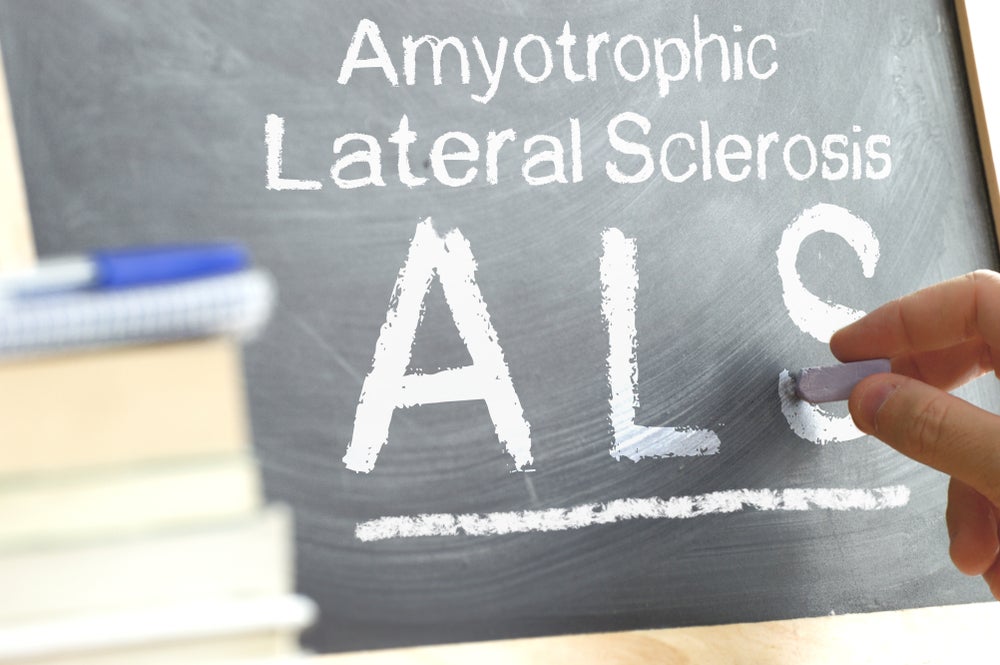Amyotrophic lateral sclerosis (ALS) is a rapidly progressive, fatal neurodegenerative condition characterised by muscle weakness, atrophy, and spasticity, arising from the gradual degeneration of both upper and lower motor neurons.
Current ALS treatment options include glutamate antagonists, free radical scavengers, antisense oligonucleotides, and apoptotic regulators that all manage the disease, but are not curative.
Thus, there is an urgent necessity to pivot the treatment paradigm towards novel disease-modifying therapies (DMTs).
Historically, developing DMTs for this rare and aggressive disease has proven challenging.
The high failure rate in ALS clinical trials is often attributed to the disease’s unclear aetiology and complex pathophysiology.
In the first quarter of 2024, both Sanofi/Denali Therapeutics’ receptor-interacting protein kinase 1 SAR443820 and Ferrer Internacional’s much-anticipated free radical scavenger FAB122 failed to achieve their primary endpoints in their Phase II and Phase III studies, respectively.

US Tariffs are shifting - will you react or anticipate?
Don’t let policy changes catch you off guard. Stay proactive with real-time data and expert analysis.
By GlobalDataOn 8 March, Amylyx Pharmaceuticals announced that Relyvrio, a neuroprotective agent, failed to achieve its primary efficacy endpoints in the global Phase III PHOENIX trial for amyotrophic lateral sclerosis.
Relyvrio/Albrioza was first approved in the US and in Canada in September 2022 for the treatment of ALS.
On 4 April, following this monumental setback, the company announced the asset’s discontinuation.
According to Amylyx’s co-CEOs Joshua Cohen and Justin Klee: “We are surprised and deeply disappointed by the PHOENIX results following the positive data from the CENTAUR trial.
“The decision to remove Relyvrio/Albrioza from the market and provide therapy free of charge for those who wish to continue was informed by the PHOENIX trial results, engagement with regulatory authorities, and discussions with the ALS community.
“However, as part of the company’s purpose to discover and develop innovative new treatment options for neurodegenerative diseases, Amylyx continues to advance two key programmes investigating its lead asset AMX0035 in Wolfram syndrome,” said Cohen and Klee.
Wolfram syndrome is an inherited condition that generally includes childhood-onset insulin-dependent diabetes mellitus.
The majority of patients with Wolfram syndrome progressively develop diabetes insipidus, sensorineural hearing loss, and autonomic nervous system degeneration.
On 10 April, Amylyx released interim results from its ongoing HELIOS trial – a 12-participant, open-label Phase II study that aimed to investigate the safety and tolerability of AMX0035 for endocrinological and neurological function.
Preliminary data from an analysis of eight participants who completed a 24-week course of treatment indicate that AMX0035 administration resulted in enhanced total C-peptide response, a validated objective laboratory measure of pancreatic beta cell function and glycemic regulation.
Moreover, AMX0035 demonstrated favourable outcomes across multiple key parameters in the HELIOS trial, including a mean reduction of 0.26% in haemoglobin A1C levels following 24 weeks of treatment.
Continuous glucose monitoring revealed an average improvement of 7.1% in the absolute time spent within the target glycemic range. Additionally, all patients achieved either stabilisation or improvement of their condition by week 24.
Due to the failure of Relyvrio, Amylyx’s shares have inevitably plummeted and the company announced that it would reduce its workforce by approximately 70%.
Despite the recent setbacks, Amylyx’s resilience still presents a ray of hope for the company.






